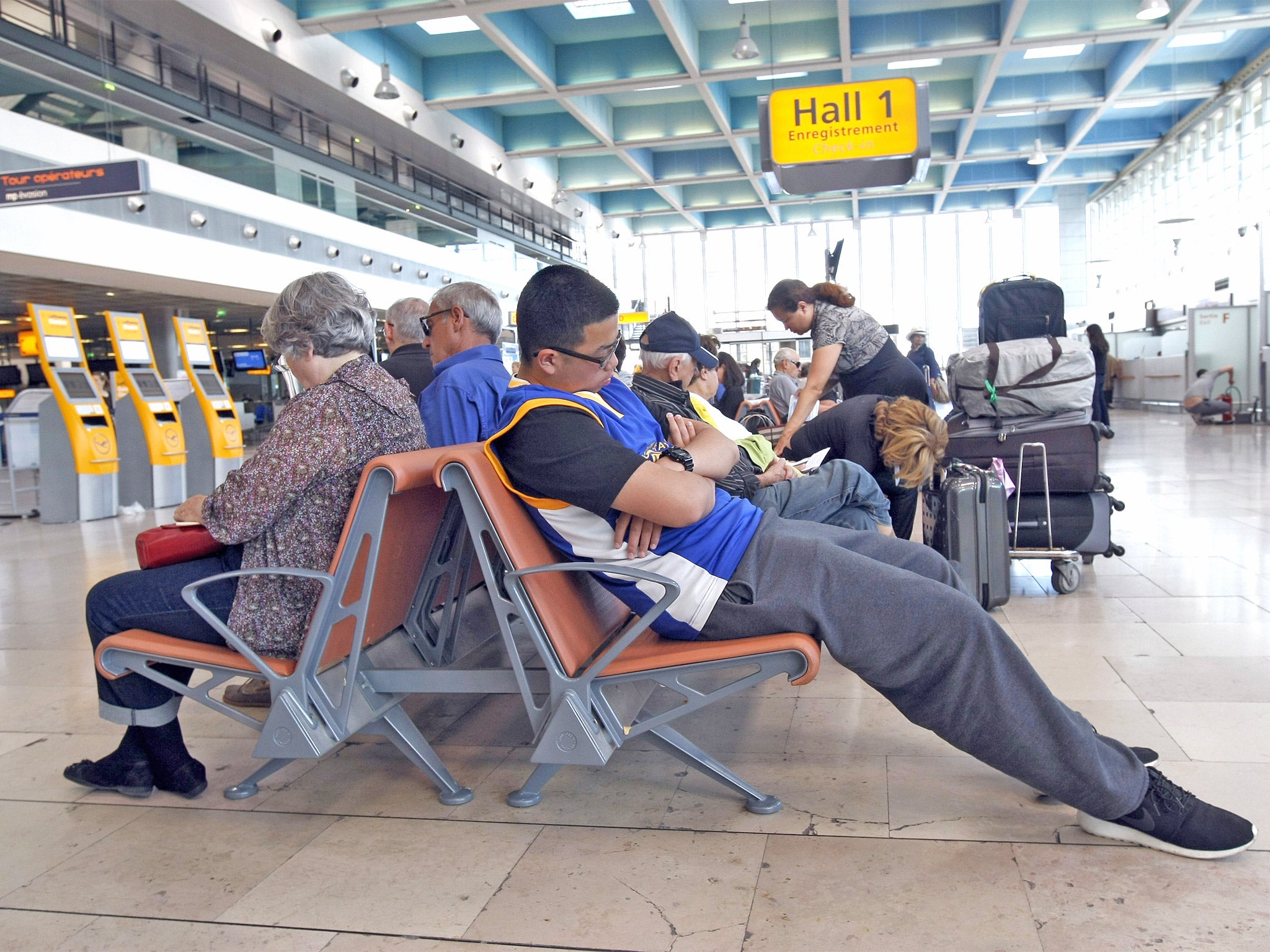Air passengers face major delays as Europe’s air controllers take action
Three-day strike in France, with Hungary, Italy and Portugal also likely to be affected

Flights are expected to be disrupted across Europe today as air traffic controllers in 11 countries take industrial action in protest against European Union plans to wrest control of the skies from individual states and create a single European airspace.
EU officials say that the overhaul will reduce flight times and slash costs by up to €5bn (£4bn) a year – savings they say would be passed on to the consumer. But unions warn that the plans could jeopardise passenger safety and threaten jobs in the aviation industry.
A three-day strike began in France today as the European Commission announced legislation to revive the Single European Sky (SES) project first mooted more than a decade ago to create an integrated air space above the continent.
The proposed new legislation would give Brussels new powers to set standards for air traffic control bodies and penalise EU members for not moving swiftly enough to implement the SES.
“Our airlines and their passengers have had to endure more than 10 years of reduced services and missed deadlines on the route to a Single European Sky,” said Siim Kallas, the EU transport commissioner. “We cannot afford to continue this way.”
The EU argues that a fragmented air space managed by 60 different control centres means planes are not taking the most direct routes, adding an average of 42km (26 miles) to each flight. Each journey therefore causes more pollution and costs the carrier and the consumer more money.
But officials from the European Transport Workers’ Federation (ETF) say the overhaul of the sector would mean job losses and lower pay for aviation staff, which could impact safety.
“The ATM [air traffic management] staff is suffering from a performance scheme dominated by a never-ending cost reduction and in which safety is not considered to be the first priority,” François Ballestero, the ETF political secretary, said in a statement announcing the strikes in April.
More than 1,800 flights to and from French airports were cancelled, with 50 per cent of all flights over the three days of the French strike expected to be affected. Hungarian air traffic controllers are likely to join the strike today, while other industrial action, including working to rule, is due in nine other member states including holiday hubs in Italy and Portugal.
Currently each European nation has full control over its air space with the aviation bodies usually state-owned. EU legislation passed last year was meant to start the transformation of the air space into nine blocks, to reflect the real flow of air traffic rather than national borders. So far, only two blocks – including the UK and Ireland block – are up and running.
In a statement the EU said that the number of flights over Europe was expected to increase by 50 per cent over the next two decades, with delays and cancellations reaching an “unprecedented scale” unless operations are streamlined.
The proposals must be approved by the European Parliament and the 27 member states, a process that can take up to a year and is likely to be delayed by union opposition. French Transport Minister Frédéric Cuvillier said that he and his German counterpart would suggest postponing the legislation.
Subscribe to Independent Premium to bookmark this article
Want to bookmark your favourite articles and stories to read or reference later? Start your Independent Premium subscription today.

Join our commenting forum
Join thought-provoking conversations, follow other Independent readers and see their replies